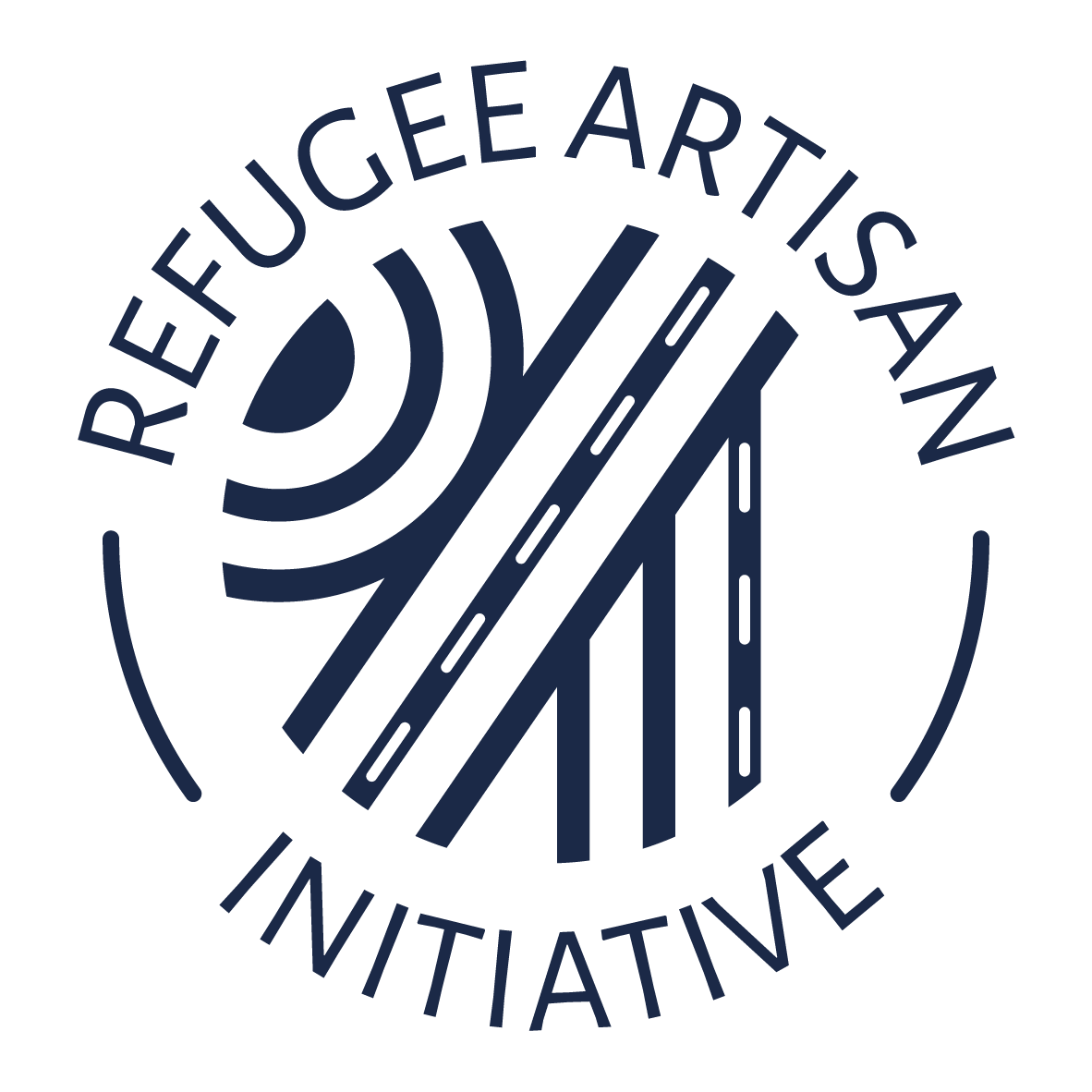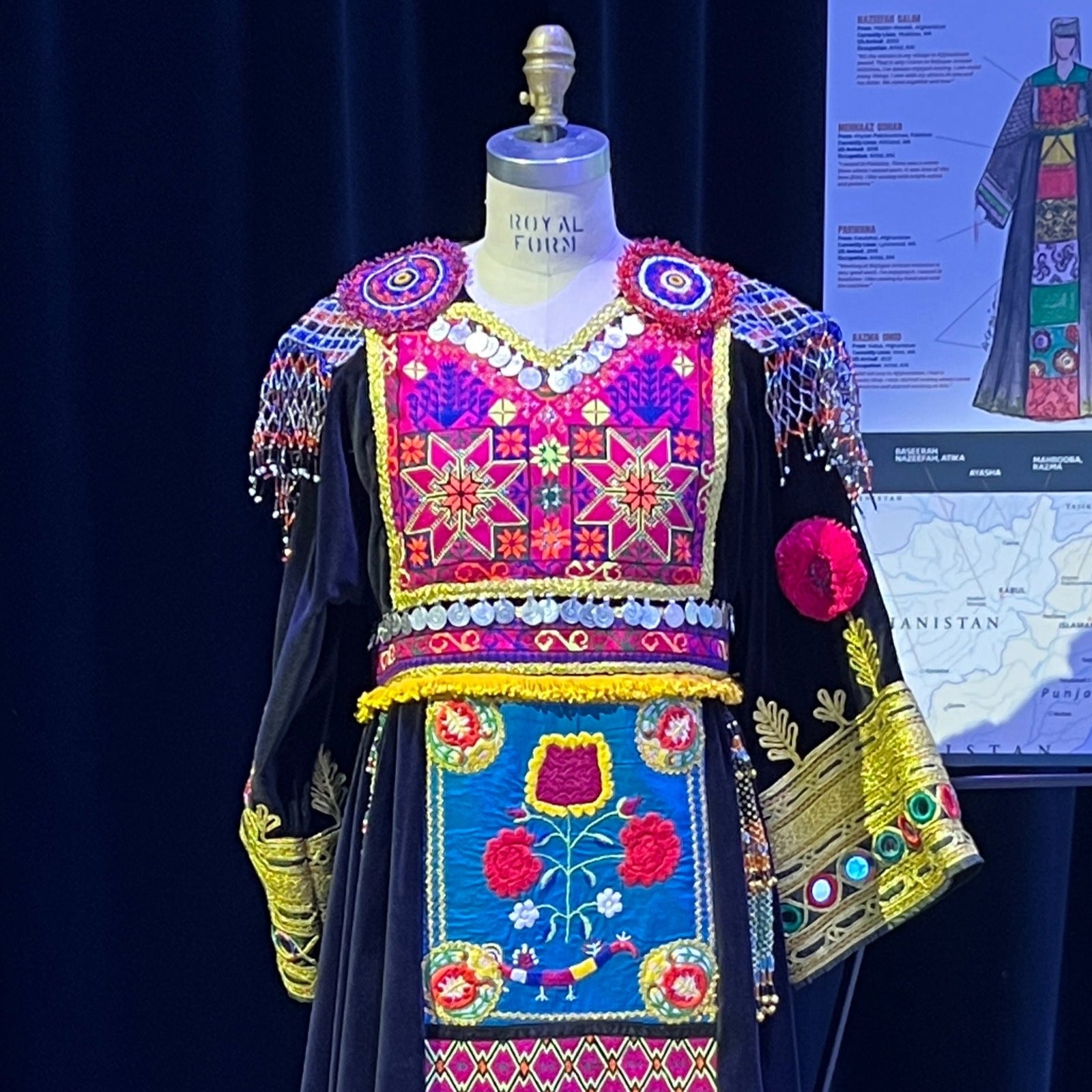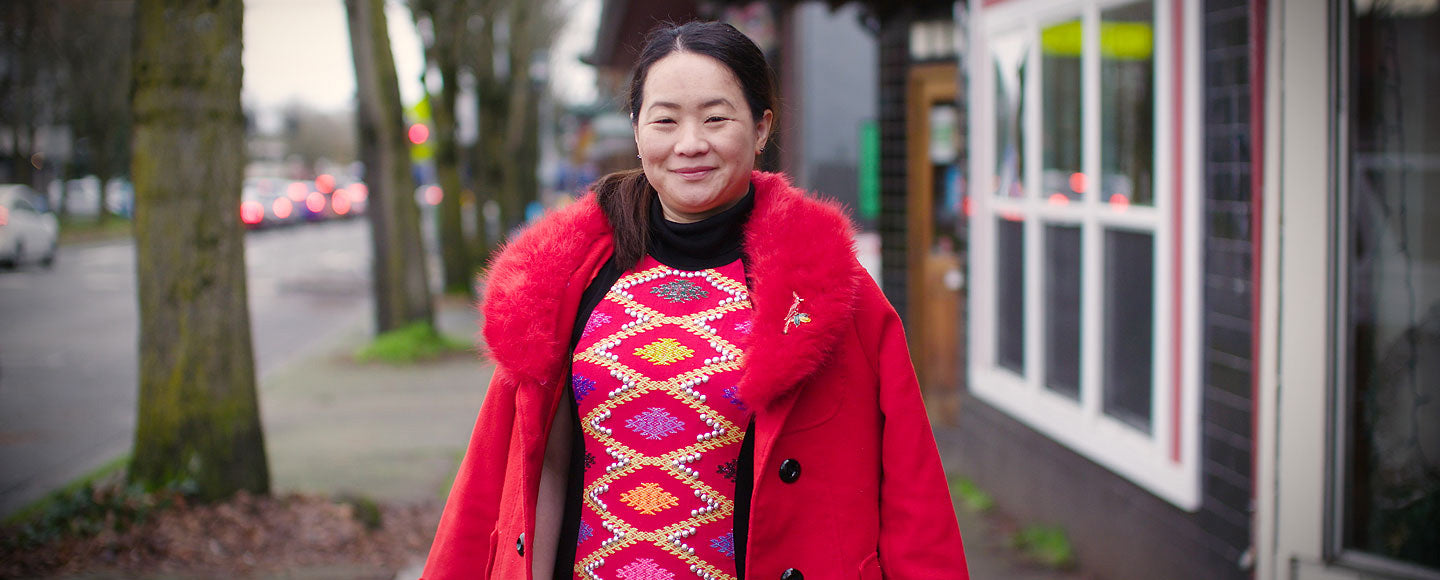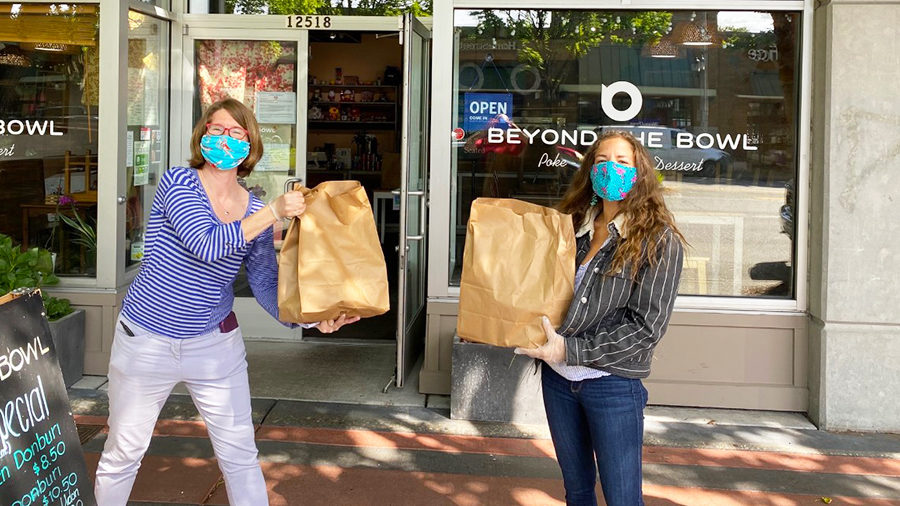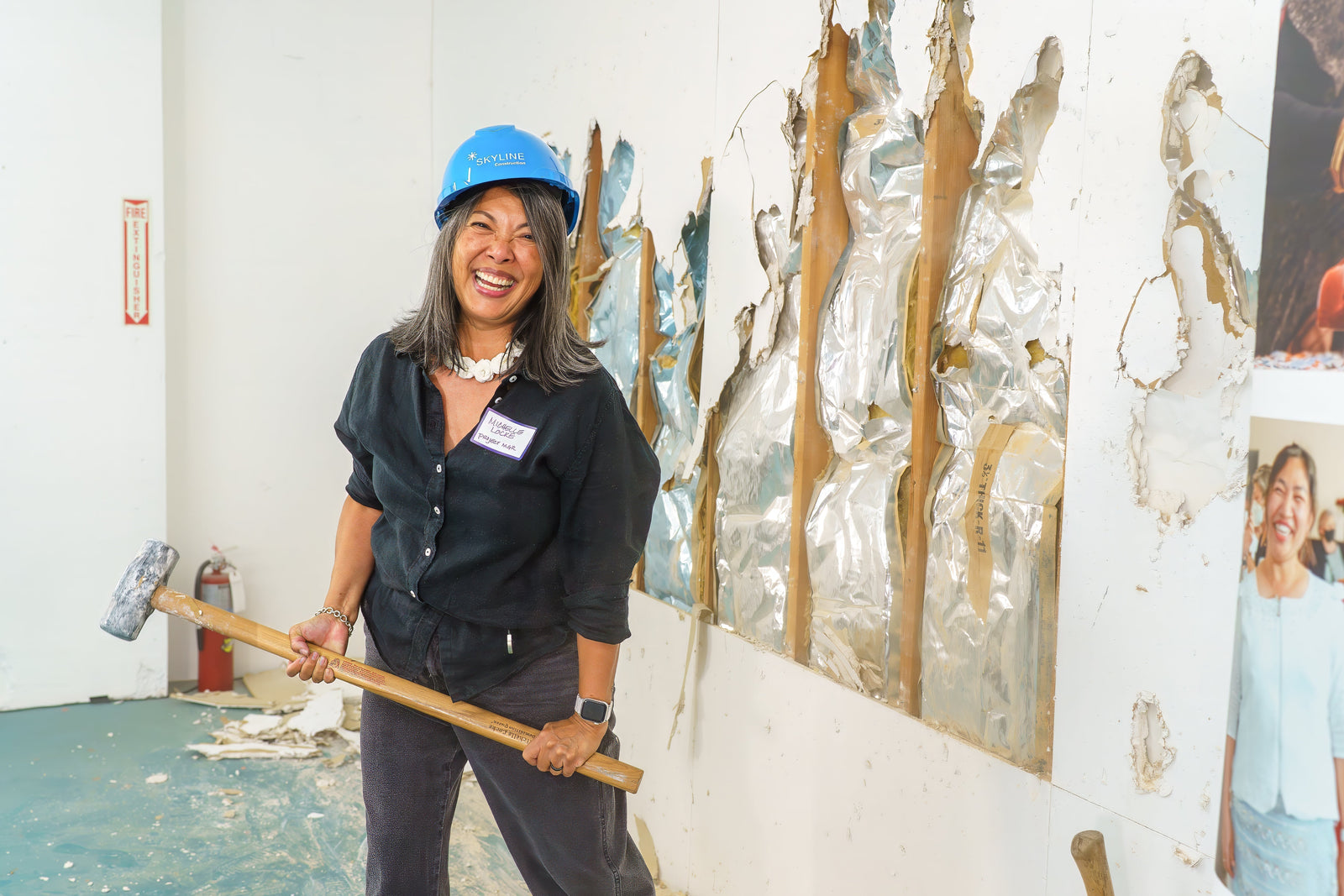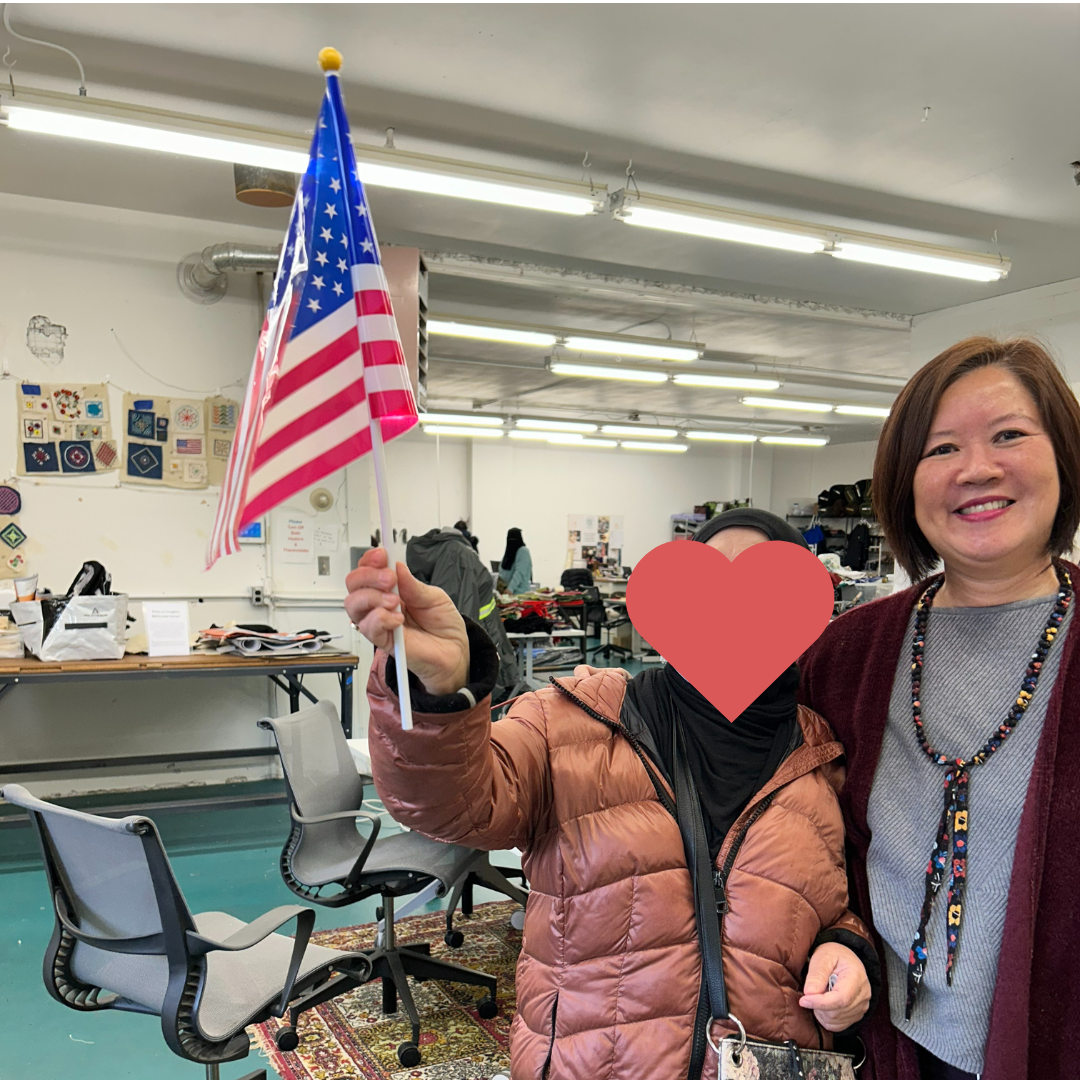February 3, 2021
Written by:
With their upcycled fabric creations, refugee artisans are supporting their families, protecting the environment and public health, and putting a Seattle neighborhood’s revitalization plan into action.
In an apartment she shares with her three children, Julie Tang Bau transforms discarded scraps of fabric into fleece hats and scarves, kitchen towels, placemats, totes, medical scrubs, masks, and other products.
With the upcycled sewing creations she makes as part of Refugee Artisan Initiative, Bau is reinventing her life after fleeing Myanmar in 2009 over religious persecution.
“We have a community,” she said of herself and Refugee Artisan Initiative’s 11 other artisans who made and sold more than 4,000 items online and in stores throughout Seattle in 2019.
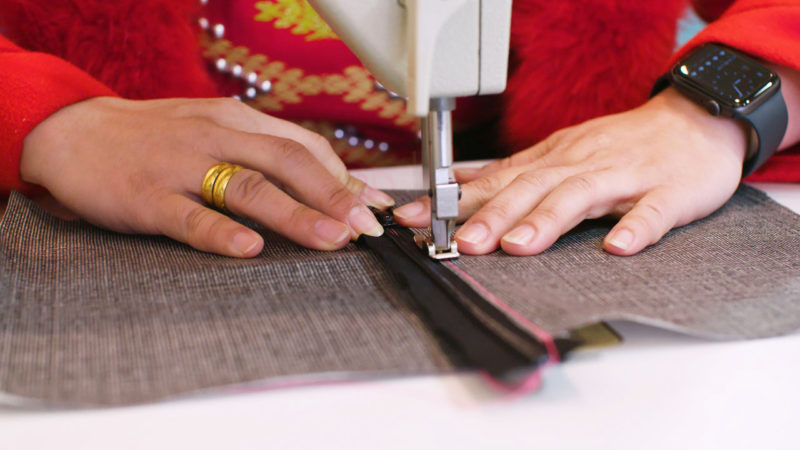
Pivoting during the pandemic, Bau and her fellow artisans made over 80,000 cloth masks — including windowed masks to assist the deaf community with lip reading and “sip and eat” masks with mouth openings — as well as medical scrubs made from bed sheets, and fleece hats and scarves. The hats and scarves go to 25 local nonprofits for distribution to those experiencing homelessness.
Bau learned to sew and got her machine from Refugee Artisan Initiative thanks to Build Lake City Together, a neighborhood revitalization effort launched in 2016 by Children’s Home Society of Washington.
It’s designed to strengthen Lake City — a community about eight miles northeast of downtown Seattle. Build Lake City Together addresses affordable housing, social services, parks, small business growth and economic development, community relations, and other community needs.
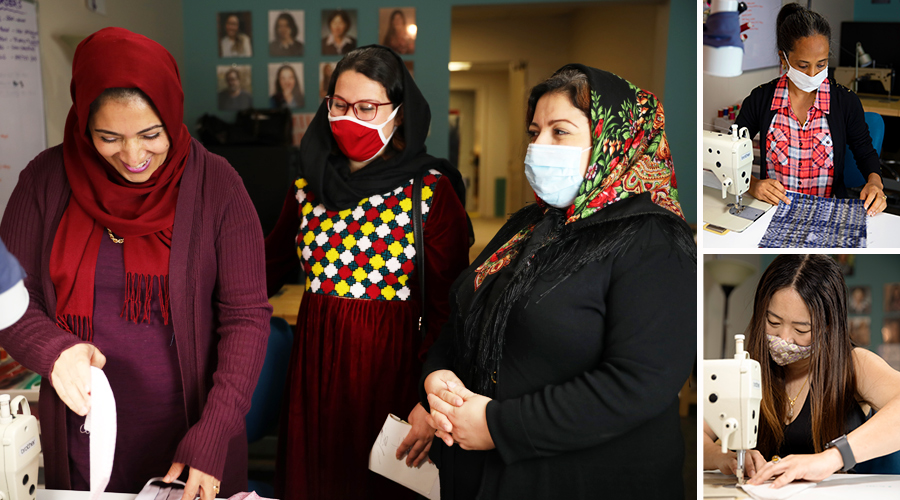
Since the pandemic, Children’s Home Society of Washington has distributed masks made by Refugee Artisan Initiative to families at its North Seattle Family Resource Center.
Refugee Artisan Initiative is the first community group to utilize the free, small business incubator “Maker’s Space” at the Build Lake City Together office. While there, Bau and other artisans learn to make products from fabric donated by individuals and businesses, and twice a week, the women also mend clothes for residents.
The artisans also got help securing business licenses from Children’s Home Society of Washington through “How to Start Your Own Business” workshops held at the nonprofit’s North Seattle Family Resource Center.
“One of the issues we realized needed to be addressed was job growth and business opportunities addressing the needs of immigrant refugee families and unrepresented populations,” said Chris Leverson, project manager for Children’s Home Society of Washington’s Build Lake City Together initiative.
According to the U.S. Bureau of Labor Statistics, the November 2020 unemployment rate was 4.3% for greater Seattle. But Build Lake City Together’s research found Lake City’s unemployment rate to be twice that.
Maintaining ‘the economic and cultural diversity of Lake City’
Build Lake City Together’s neighborhood work is supported by a $550,000 grant and technical assistance from Wells Fargo. This funding and support from the Reinvestment Fund, NeighborWorks® America, and Community Wealth Partners allows Build Lake City Together to invest in Refugee Artisan Initiative and other local projects. Since March, it has worked with seven restaurants to provide 12,000 meals in a meal distribution program to address food insecurity issues heightened by the pandemic — generating thousands of dollars in sales for these small businesses.
Leverson said a 35-member steering committee of residents, businesses, and community leaders guides the work to help Lake City avoid the gentrification and displacement that has sometimes accompanied Seattle’s growth.
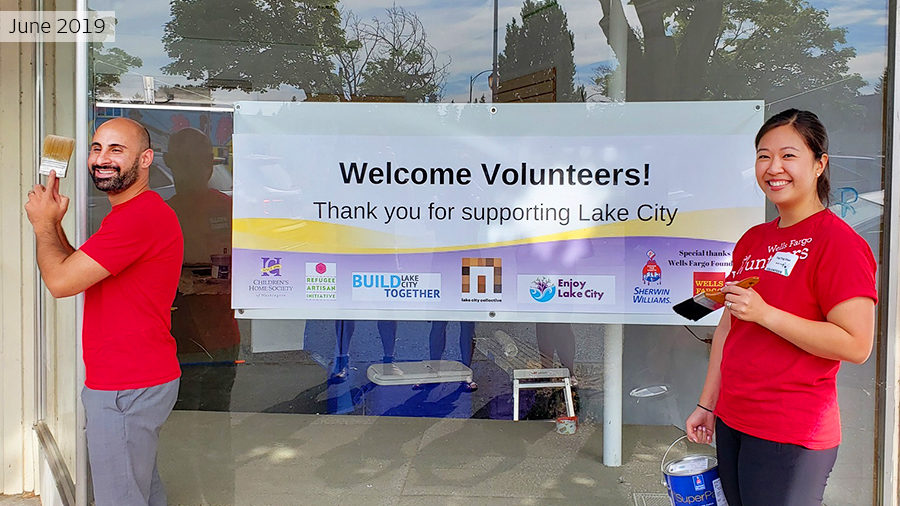
Volunteers pick up food from Beyond the Bowl restaurant — part of 12,000 meals purchased from small businesses and distributed to those with food insecurity through Build Lake City Together’s “Food is Love” outreach. Chan, right, and then-North Seattle District Manager Jon Fotoohi were among the Wells Fargo volunteers who worked to spruce up Build Lake City Together's Maker's Space. Volunteers pick up food from Beyond the Bowl restaurant — part of 12,000 meals purchased from small businesses and distributed to those with food insecurity through Build Lake City Together’s “Food is Love” outreach. Chan, right, and then-North Seattle District Manager Jon Fotoohi were among the Wells Fargo volunteers who worked to spruce up Build Lake City Together's Maker's Space.
“We have not yet seen the development here in Lake City that the rest of Seattle has seen, but it’s definitely coming,” Leverson said. “We have a special opportunity to maintain what we really value — the economic and cultural diversity of Lake City — and develop the necessary infrastructure and amenities that support healthy living and allow people and businesses to stay in the community.”
Home to more than 80 businesses and 30,000 residents, Lake City is so culturally diverse that its schools serve children and families who speak more than 26 different languages, Leverson said.
It was Lake City’s large population of refugee and immigrant women — and the amount of textile waste going into landfills — that inspired Ming-Ming Tung-Edelman to create Refugee Artisan Initiate as the Build Lake City Together revitalization effort took hold.
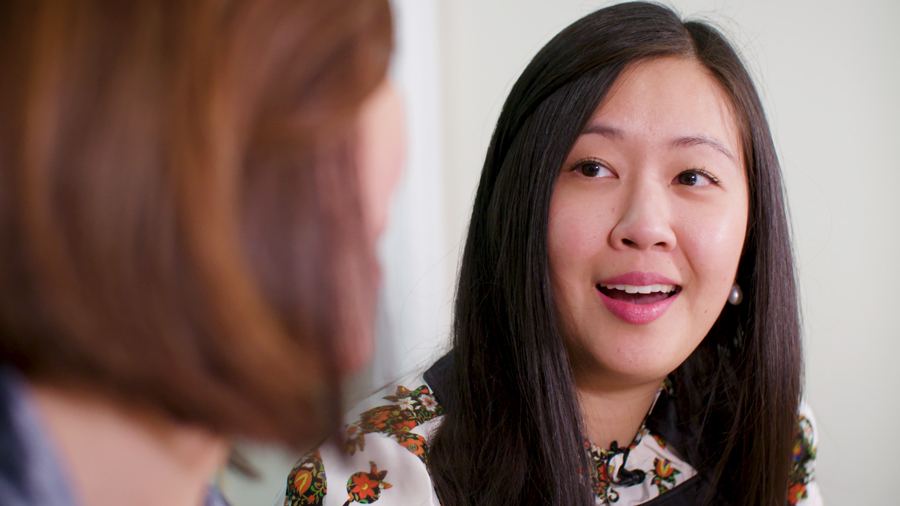
“What Refugee Artisan Initiative is trying to do is provide newly arrived refugee and immigrant women with basic sewing and craft skills so they can have a sustainable income for their families and achieve their own American dream,” said Tung-Edelman, who arrived in the U.S. from Taiwan 34 years ago.
Wells Fargo Premier Banker Ting Ting Chan first learned about Refugee Artisan Initiative while serving Tung-Edelman as a customer.
“When she came into the branch telling me about her nonprofit and how it helped refugee and immigrant women find sustainable work caring for their families, I knew it was something I wanted to be involved in.”— Ting Ting Chan, Wells Fargo premier banker
“When she came into the branch telling me about her nonprofit and how it helped refugee and immigrant women find sustainable work caring for their families, I knew it was something I wanted to be involved in,” Chan said.
“I’m a first generation Chinese American. My father was from mainland China, and my mother was airlifted out of Saigon before it fell with her parents and siblings and one suitcase of belongings,” she said. “When my mother came to the U.S. in the 1970s, she had to start from scratch. I wish she could have had access to something like RAI.”
In addition to arranging a Wells Fargo donation of office furniture and a volunteer day to paint and clean Refugee Artisan Initiative’s workspace, Chan now serves as treasurer on the nonprofit’s board of directors. She also volunteers her time sharing financial knowledge with Tung-Edelman and the rest of Refugee Artisan Initiative.
“Growing up, I remember my parents telling me, ‘We moved to America to give you the opportunity to go to school and find a good job and give back,’” Chan said. “Thanks to Wells Fargo, I’m doing that.”
